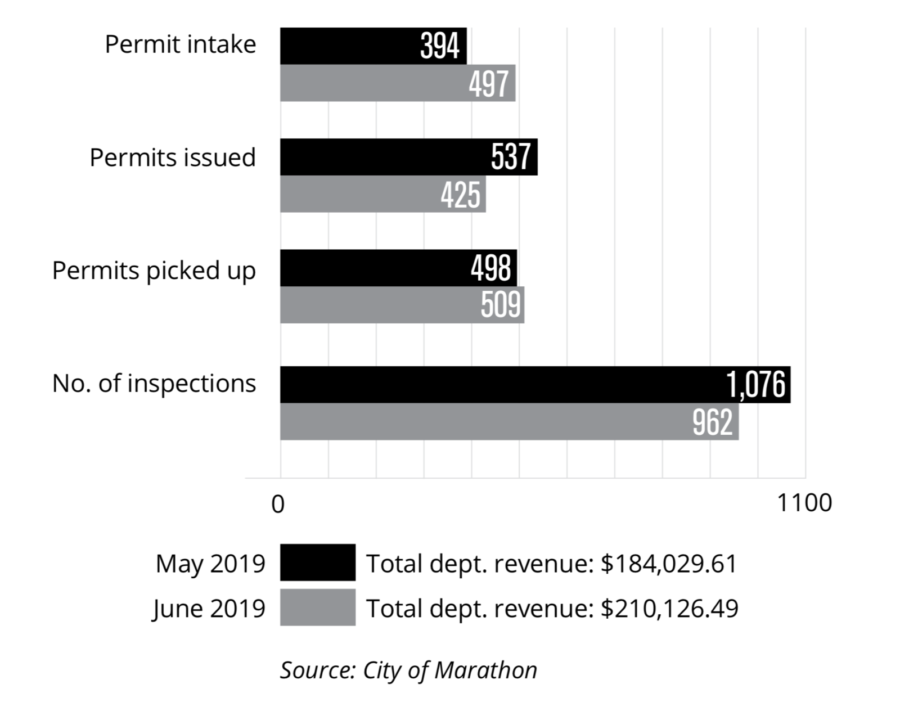The City of Marathon is investing in software and studies to improve the efficiency of its Growth Department, which oversees the code and building practices, and the Planning Department.
On Aug. 13, the Marathon City Council approved the purchase of Viewpoint software. The software costs $37,100 the first year, and has annual fees of $20,300.
“This purchase wasn’t budgeted until next year, but I have to commend Growth Management Director Doug Lewis for finding a way to make this happen,” said City Manager Chuck Lindsey. “What we’re currently using is outdated.”
Lindsey said the new software will allow residents and contractors to submit applications electronically, pay for them, and print them at home. It also allows inspectors to file reports from the field, search for permit information and view plans. Instead of a file folder that moves from desk to desk through city hall, various employees can work on a single issue simultaneously. “There’s real-time awareness and users can log in and see more accurately the status of permits,” Lindsey said.
He said the software can “grow” with the city. “As we go along, we can add functionality like the ability to reserve and pay for a pavilion reservation at the beach,” he said. The data is stored in the “cloud,” and can be accessed remotely in the event of a natural disaster.
Right now the city employs three building inspectors. Lindsey said they are performing between 40 and 60 inspections a day, about 1,000 a month.
“That’s another thing the software can do,” he said. “Users can log in and see where their inspector is. That way they are not ‘waiting for the cable guy to come.’”
The software, expected to go live in January, will help alleviate the high number of hours needed to deal with code cases and issue building permits. Lindsey said he’s well aware that the city is seeing a spike of work, and revenues, for the two departments; that isn’t expected to last forever once the city is mostly recovered from Irma.
In addition to the software, the city has commissioned two studies.
“The impact fees study should show us where we have the most impacts and costs associated with new growth, and how to help offset those costs with fees collected from new construction,” wrote Lewis in the August report to council. Lewis said it cost $50,000.
“The permit fee study will focus on the cost to operate and support the building department. This will give us the ability to show the public what the fees are based on and why,” Lewis wrote. “Additionally, we will be able to see what the cost savings are with private provider projects (both inspections and plan review), so we can set a fee reduction schedule when those services are involved.” The permit fee study cost $25,000.
At the council meeting, council directed staff to reimburse contractors who paid for the inspection in the permit, but then hired private inspectors to perform the service. Lacking the fee structure on how much that will cost, the city will mirror Monroe County’s policy of refunding 25% of the cost of the permit as a temporary solution.
The studies should be complete in late October, according to Lewis.
In May and June, the city opened 891 new permit applications, issued permits and performed almost 2,000 inspections. More than 75 percent of the permits are described as “accessory” such as fences, almost a quarter are residential permits and the remaining sliver is for commercial work. Marathon’s Building Department collected $394,156.10 of revenue over the same two months.




























